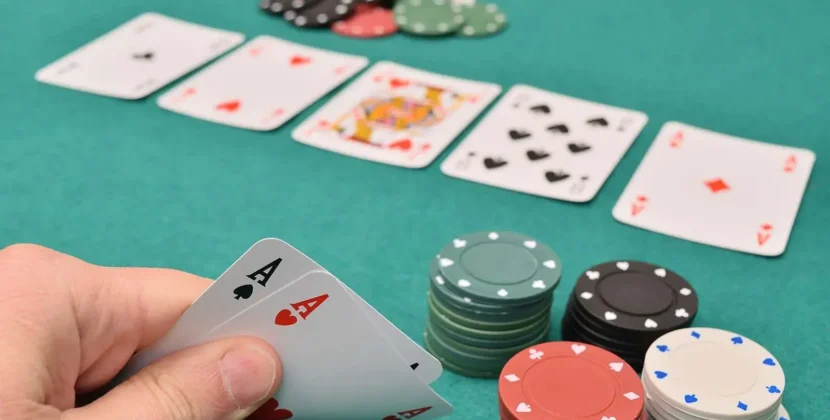Poker is more than just a game of strategy and skill; it’s also a complex emotional experience. Even seasoned players can find it challenging to maintain their composure at the table. One significant emotional hurdle that poker players encounter is known as “tilt.” Tilt can derail your game, deplete your bankroll, and leave you feeling exasperated. Recognizing what tilt is and learning effective management strategies is essential for anyone serious about poker.
In this article, we will delve into the concept of poker tilt, explore its causes and effects on your game, and provide practical tips for managing and preventing it.
What Is Poker Tilt?
Tilt refers to an emotional state characterized by frustration or anger, which can lead to poor decision-making at the poker table. When players are on tilt, they may make irrational bets, chase losses, or engage in hands they typically would avoid. It’s not merely about losing your temper; tilt can manifest more subtly, such as feeling overly confident after a win or becoming anxious following a series of losses.
Essentially, any intense emotion that disrupts your ability to think clearly and make sound decisions can be classified as tilt.
Tilt can affect players of all experience levels. While even professional players can experience tilt, they tend to manage it better and maintain their decision-making quality more effectively. Skilled players often employ various techniques to cope with tilt, allowing them to maintain discipline and focus.
Why Do Players Go on Tilt?
Several factors can trigger tilt in both offline and online poker environments. Here are some common culprits:
- Bad Beats: Losing a hand despite holding stronger cards can be incredibly frustrating. A “bad beat”—especially one where you lose due to an unexpected draw on the River—can evoke feelings of helplessness and anger.
- Losing Streaks: Experiencing multiple losses in a row can lead to self-doubt and desperation, prompting reckless decisions in an attempt to recover losses, which often exacerbates the situation.
- Opponent Behavior: The conduct of other players can also contribute to tilt. Trash-talking, slow-rolling, or unsportsmanlike behavior can distract and irritate you, making it harder to concentrate on your own game.
- Personal Issues: External stressors—such as problems at work or in personal relationships—can influence your mental state during a poker session. If you’re feeling emotionally charged before playing, you’re more susceptible to tilt.
- Fatigue: Long hours at the table without breaks can lead to mental exhaustion, impairing your ability to manage emotions and think clearly, making you more vulnerable to tilt.
How Does Tilt Affect Your Game?
Tilt can severely hinder your performance in poker. Here are some ways it can impact your game:
- Poor Decision-Making: When emotions override logical thinking, you might make unusual plays, increase bet sizes impulsively, or call bets that should warrant a fold. This can lead to significant financial losses, creating a vicious cycle of poor choices.
- Chasing Losses: A common sign of tilt is the urge to chase losses. Rather than sticking to your strategy and accepting losses, you may make risky bets in an attempt to recoup what you’ve lost, often resulting in further losses.
- Erratic Play Styles: Tilt can manifest as over-aggression or passivity. You might start betting erratically without considering the odds or become overly cautious, folding too frequently, even with strong hands.
- Loss of Focus: Being on tilt often results in a lack of concentration. You may fail to notice your opponents’ actions, overlook crucial details, or disregard statistical analysis, leading to costly errors.
- Bankroll Damage: If tilt is not controlled, it can quickly deplete your bankroll. A few poor decisions can lead to substantial losses, and continuously chasing losses while on tilt can result in financial ruin.
Strategies to Manage and Prevent Tilt
Effectively managing tilt is vital for success in poker. Here are several strategies to help you maintain control:
- Recognize Tilt Symptoms: The first step in managing tilt is to identify its signs. Be mindful of your emotions and behavior. If you notice feelings of frustration or anxiety affecting your decision-making, it’s likely you’re on tilt. The sooner you recognize it, the easier it will be to regain control.
- Take Breaks: If you find yourself on tilt, step away from the table. A short break to clear your mind can help you regain composure and return to the game with a fresh perspective.
- Set Stop Losses: Before you start playing, establish clear limits for your losses. Decide how much you’re willing to lose and stick to that limit. If you reach it, stop playing to avoid further losses.
- Practice Mindfulness: Mindfulness can help you remain present and aware of your emotions without allowing them to dictate your actions. Developing this skill can aid in maintaining calmness and focus during play.
- Maintain a Long-Term Perspective: Poker involves variance, and short-term results may not accurately reflect your skill level. Concentrate on making sound decisions and improving your overall game rather than fixating on the outcomes of individual hands.
- Avoid Playing When Emotional: If you’re experiencing heightened emotions prior to a game, consider postponing your session. Clear-mindedness is crucial for making sound decisions in poker.
- Establish a Pre-Game Routine: Developing a consistent pre-game routine can help set the right mental tone before you play. This might involve deep breathing exercises, visualization techniques, or reviewing your objectives for the session.
- Analyze Your Triggers: After each session, reflect on what might have triggered your tilt. Understanding these triggers can help you manage them more effectively in future games.
- Learn from Mistakes: Use tilt as an opportunity for growth. After a session, review your decisions and hands to identify mistakes. This analysis can reveal behavioral patterns and areas for improvement.
- Seek Support: If tilt is a persistent issue, consider reaching out to fellow players or coaches for guidance. Sharing experiences and strategies can help you develop new methods for emotional management.
- Cultivate a Healthy Lifestyle: Your overall well-being significantly impacts your poker performance. Ensure you maintain a balanced lifestyle that includes proper nutrition, relaxation, and adequate sleep. Surrounding yourself with supportive individuals can also foster a positive mindset.
Conclusion
Tilt poses one of the greatest challenges for poker players, but it is manageable. By understanding the nature of tilt, recognizing its signs, and applying effective strategies, you can maintain emotional control and enhance your decision-making abilities at the table. Remember that poker is a long-term pursuit; remaining calm, focused, and disciplined will contribute to your success. By practicing these strategies, you’ll be better equipped to handle tilt, ultimately leading to improved performance in your poker journey.








